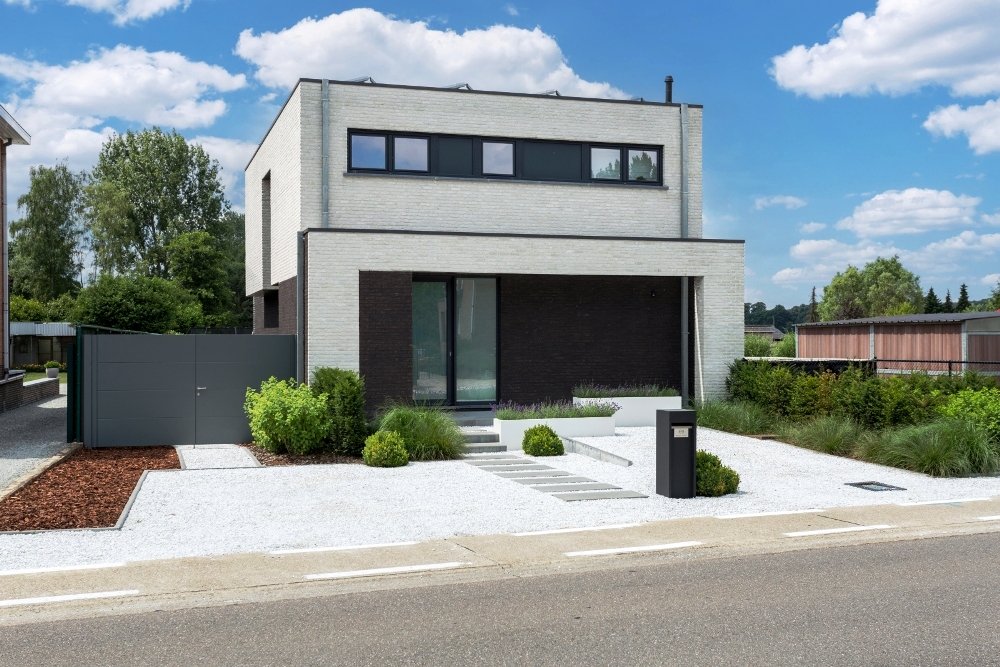
Are you contemplating a home remodeling but torn between remodeling your existing space or starting fresh with new construction? Making the right choice can be daunting, but fear not, as we delve into the age-old debate of remodeling vs new construction. Whether you’re envisioning a modern update to your current abode or dreaming of crafting a custom-built sanctuary, this comprehensive guide will help you navigate the pros and cons of each option. Join us as we explore the factors to consider, from budget and timeline to environmental impact and resale value, ultimately empowering you to make an informed decision that brings your vision to life.
Understanding Your Options
Remodeling: Transforming the Familiar
Remodeling involves making changes to an existing structure, like updating a kitchen or adding a new room. It’s like giving your old house a makeover to suit your current needs and style preferences.
When you remodel, you’re building upon the foundation of your existing home, which can have both advantages and limitations. On one hand, you’re working with an established structure, potentially saving time and money on certain aspects of construction. On the other hand, you may encounter unexpected challenges, such as hidden structural issues or outdated wiring, which can complicate the renovation process.
New Construction: Building from the Ground Up
New construction, on the other hand, means starting fresh. It’s akin to crafting a brand-new house, tailored precisely to your specifications and desires.
Building a new home offers a blank canvas for creativity and customization. You have the freedom to design every aspect of your home, from the layout and floor plan to the materials and finishes used. However, new construction typically requires more time, resources, and planning compared to remodeling projects.
Considering Costs
Remodeling: Budget-Friendly Updates
Remodeling can often be more cost-effective than building anew since you’re working with existing structures. However, unexpected issues may arise, potentially driving up expenses.
The cost of remodeling can vary widely depending on the scope of the project and the materials used. Simple updates like painting walls or replacing fixtures may be relatively inexpensive, while major renovations such as adding a room or restructuring the layout can be more costly. It’s essential to set a realistic budget and prioritize your renovation goals to avoid overspending.
New Construction: Investing in Long-Term Value
While new construction may have a higher initial price tag, it allows for greater control over budgeting and can lead to long-term savings on maintenance and repairs.
When building a new home, you have the opportunity to choose energy-efficient materials and appliances, which can reduce utility costs over time. Additionally, new homes often come with warranties on structural components and appliances, providing peace of mind and potentially saving money on repairs in the future.
Time and Convenience Factors
Remodeling: Minimizing Disruption
Remodeling projects can disrupt your daily life, especially if you’re renovating essential areas like the kitchen or bathroom. However, they typically take less time to complete compared to new construction.
Depending on the extent of the renovations, remodeling projects can range from a few days to several weeks or even months. It’s essential to communicate with your contractor and plan accordingly to minimize inconvenience and ensure that the project stays on schedule.
New Construction: Patience for Perfection
Building a new home requires patience as it involves various stages from design to completion. While it may take longer, the end result can be precisely tailored to your preferences.
The timeline for new construction can vary depending on factors such as the size and complexity of the home, local building regulations, and weather conditions. On average, the process can take anywhere from six months to over a year. It’s essential to be patient and flexible throughout the construction process, as unexpected delays can occur.
Assessing Your Needs
Remodeling: Tailored Solutions
If you love your current neighborhood or have sentimental attachments to your home, remodeling allows you to enhance what you already have, preserving the essence of your living space.
Remodeling enables you to address specific needs and preferences without the upheaval of moving to a new location. Whether you want to update outdated features, improve functionality, or increase the value of your home, remodeling offers tailored solutions to meet your requirements.
New Construction: Crafting Your Dream Home
For those seeking a fresh start or specific features that their current home can’t provide, new construction offers the opportunity to create their dream home from scratch.
Building a new home allows for full customization, from the layout and architectural style to the smallest details like light fixtures and cabinet hardware. Whether you envision a modern minimalist retreat or a cozy farmhouse-style abode, new construction allows you to bring your vision to life.
Environmental Considerations
Remodeling: Sustainable Updates
Remodeling can be a more eco-friendly option, as it involves repurposing existing materials and structures, reducing waste and environmental impact.
By incorporating sustainable practices and materials into your remodeling project, such as energy-efficient appliances, recycled building materials, and low-VOC paints, you can minimize your home’s carbon footprint and create a healthier living environment for you and your family.
New Construction: Building Green
However, new construction allows for the integration of the latest energy-efficient technologies and sustainable building practices from the ground up, potentially leading to a more environmentally friendly home.
By working with architects and builders who specialize in green building techniques, you can design a home that maximizes energy efficiency, reduces water consumption, and minimizes waste throughout the construction process. From solar panels and high-performance insulation to rainwater harvesting systems and native landscaping, new construction offers numerous opportunities to create a greener, more sustainable home.
Evaluating Resale Value
Remodeling: Enhancing Market Appeal
Well-executed remodels can increase the resale value of your home by modernizing its features and addressing any outdated aspects, making it more attractive to potential buyers.
Whether you’re updating a single room or undertaking a whole-house renovation, remodeling can improve your home’s marketability and help it stand out in a competitive real estate market. By investing in high-quality materials and timeless design elements, you can maximize your return on investment and appeal to a broad range of potential buyers.
New Construction: Customized Selling Points
Newly constructed homes often boast modern amenities and customizable features that appeal to contemporary buyers, potentially commanding a higher resale value.
From open-concept floor plans and gourmet kitchens to spa-like bathrooms and smart home technology, new construction homes offer a level of luxury and customization that can attract discerning buyers willing to pay a premium. By incorporating sought-after features and staying abreast of current design trends, you can position your new home for maximum resale value in the future.
Making the Decision
Choosing between remodeling vs new construction ultimately depends on your priorities, budget, timeline, and personal preferences. Consider consulting with professionals to weigh the pros and cons based on your specific situation.
When making your decision, take into account factors such as the condition of your current home, your long-term housing needs, and your financial resources. Whether you opt for remodeling vs new construction, the key is to plan carefully, communicate openly with your contractors, and prioritize your must-have features to create a home that meets your needs and exceeds your expectations.
Conclusion
In conclusion, whether you opt for remodeling vs new construction, the goal is to create a space that reflects your personality and meets your needs. Each option has its advantages and considerations, from cost-effectiveness to customization. By carefully weighing your priorities and consulting with professionals, you can make the best choice for your home renovation journey. Remember, the end result should be a place where you feel comfortable, inspired, and truly at home.

FAQs About Remodeling vs New Construction
Is remodeling always cheaper than new construction?
While remodeling can often be more budget-friendly, the final cost depends on various factors such as the extent of renovations, materials used, and any unforeseen issues that may arise during the process. It’s essential to obtain multiple quotes and carefully consider the long-term value of each option before making a decision.
How long does new construction typically take?
The timeline for new construction varies depending on factors like the size of the home, weather conditions, and the efficiency of the construction team. On average, it can take anywhere from several months to over a year to complete a new build. However, proper planning and communication with your builder can help streamline the process.
Will remodeling add value to my home?
Yes, remodeling done thoughtfully and professionally can significantly increase the resale value of your home by enhancing its aesthetics, functionality, and energy efficiency. Consider focusing on updates that appeal to a broad range of potential buyers to maximize your return on investment.
Are there any tax benefits to remodeling or new construction?
Tax benefits for remodeling or new construction projects can vary depending on factors like location, the purpose of renovations, and current tax laws. It’s advisable to consult with a tax professional for personalized advice and to explore potential incentives or deductions available in your area.
How can I ensure quality and reliability in remodeling or new construction projects?
Researching and hiring reputable contractors, obtaining multiple quotes, checking references, and having a detailed contract in place are crucial steps to ensure quality and reliability in both remodeling and new construction endeavors. Additionally, maintaining open communication with your contractor throughout the project can help address any issues promptly and ensure that the work meets your expectations.
